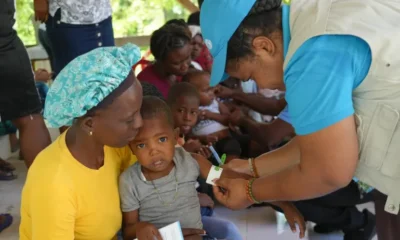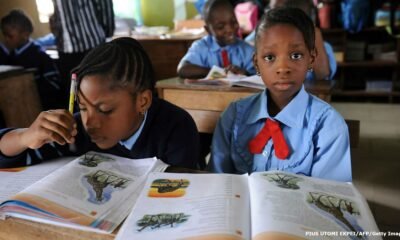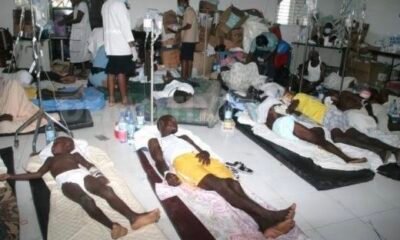Lifestyle
Oyo Govt, UNICEF Advocate Handwashing Culture to Combat Diseases

The Oyo State Government and the United Nations Children’s Fund (UNICEF), Lagos Field Office have advocated handwashing practices, urging residents to embrace it.
They gave the advice at the Year 2024 Global Handwashing Day, with the theme “Why are Clean Hands still Important?”, which held at Okolo, Ibarapa-East Local Government
Chairman, Oyo State Rural Water Supply and Sanitation Agency (OYORUWASSA),Mr. Babalola Afobaje, while speaking, emphasised the life-saving importance of handwashing with soap, calling it a health necessity, that prevents the spread of diseases such as cholera, diarrhoea and pneumonia.
Afobaje noted that significant progress had been made by the government in promoting hygiene in Oyo State, through different efforts, with the support of UNICEF and other developmental partners.
He added that it had become essential to maintain and improve handwashing practices beyond public health emergencies.
The chairman also acknowledged the support of partners such as UNICEF and Sato Lixil in promoting health hygiene in Oyo State, calling on the media to help spread the message of handwashing to the nooks and crannies of Nigeria.
“Each of us has a role to play in making handwashing a universal practice,” he said.
READ ALSO: UNICEF Raises Alarm Over Pregnant Women, Babies In The South East
READ ALSO: List of Nigerian States By Poverty Rates, If Yours Is Here….
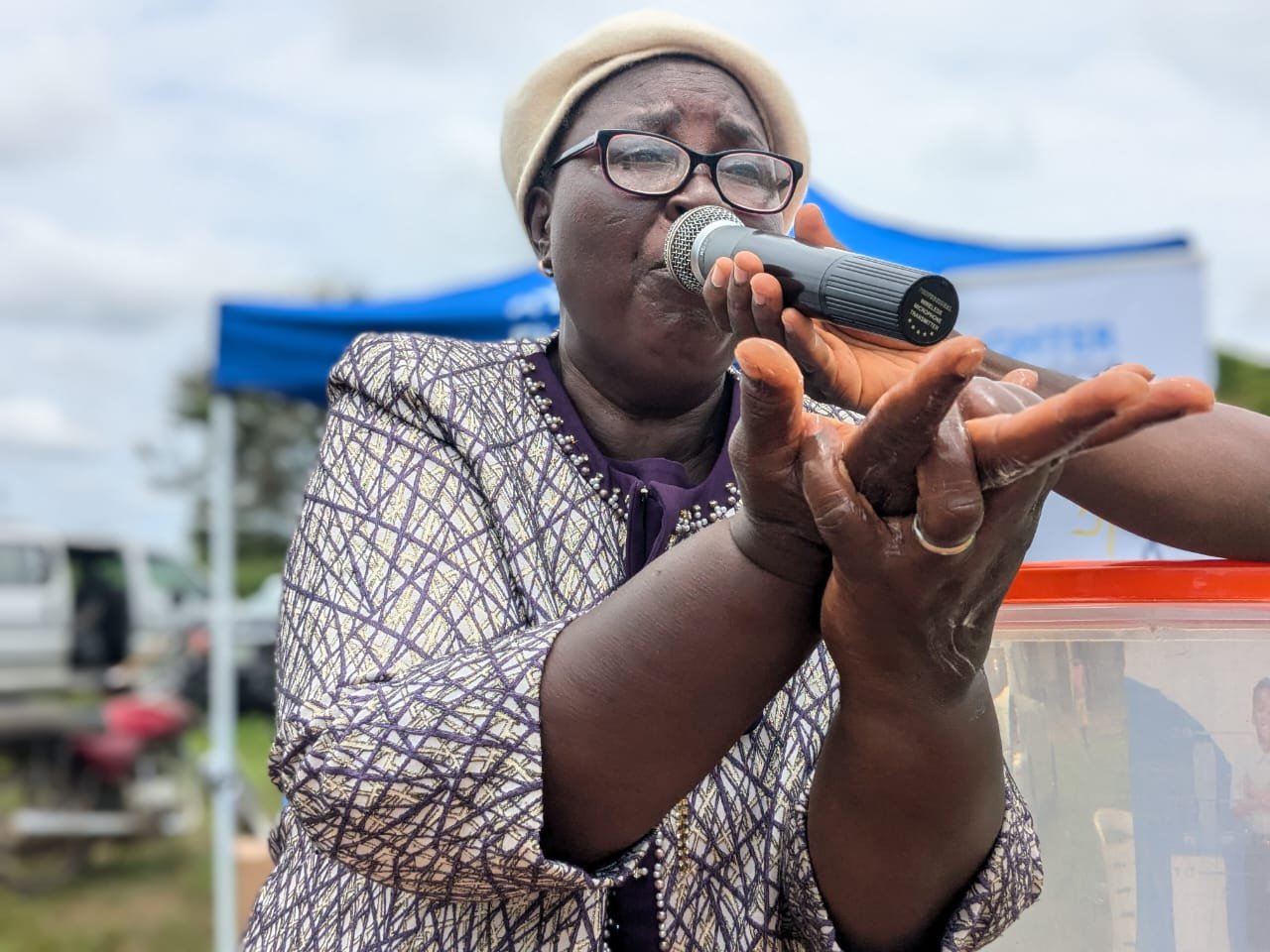
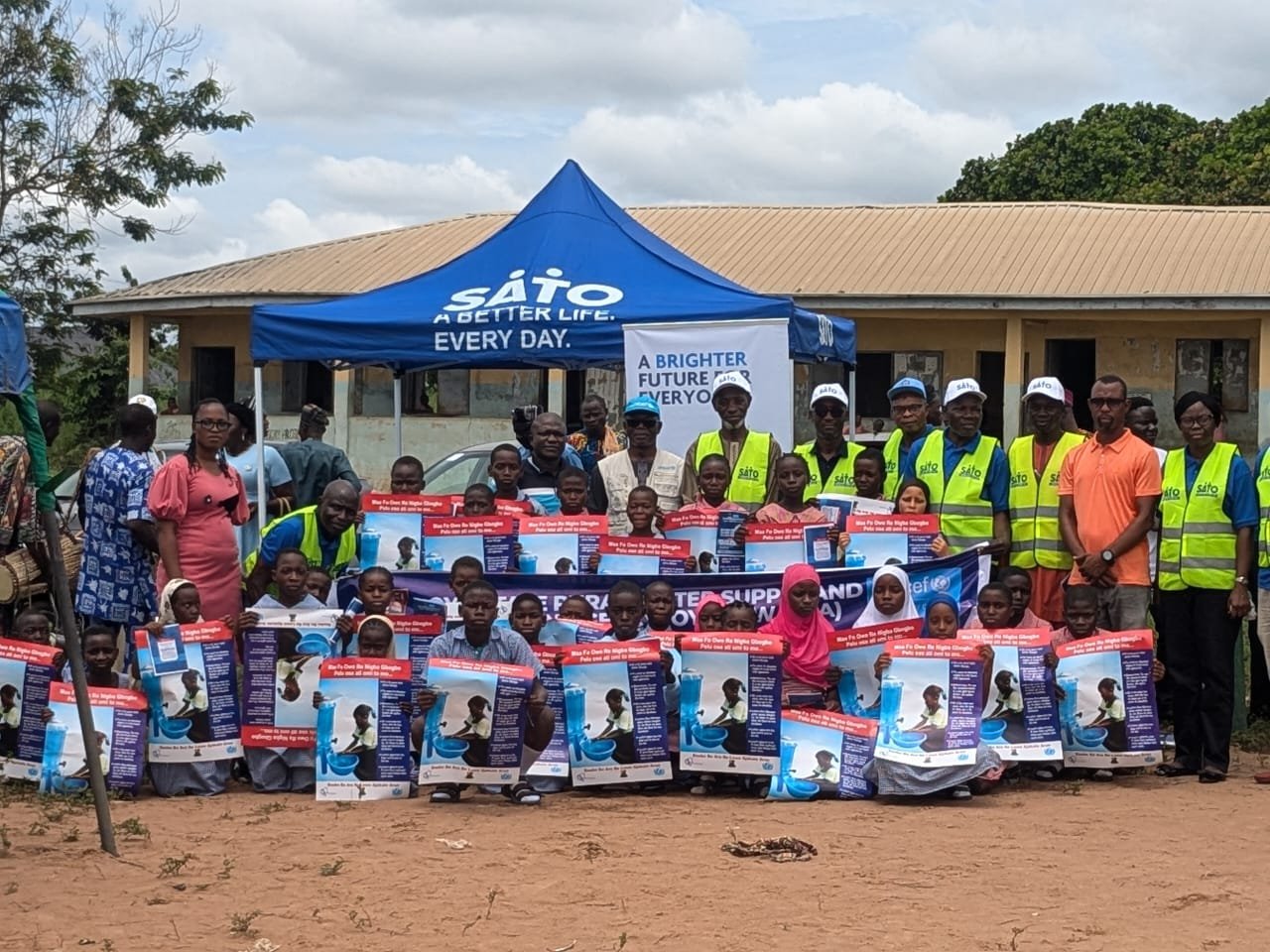 “Handwashing with soap is an important prevention for sanitation-related diseases. It will prevent us in Oyo State, particularly Ibarapa-East local government from getting sick,” the Chairman noted.
“Handwashing with soap is an important prevention for sanitation-related diseases. It will prevent us in Oyo State, particularly Ibarapa-East local government from getting sick,” the Chairman noted.

Pictures above capture the different perspectives of the event
In his own words, UNICEF Water and Sanitation (WASH) Specialist, Mr. Monday Johnson stressed that Ibarapa-East local government is very key in handwashing campaign, adding that this is why the 2024 global event is celebrated in Okolo.
Johnson said handwashing practice prevents disease outbreaks and reduces the impact of future pandemics.
He also highlighted its role in combating pandemics and supporting efforts to eliminate Neglected Tropical Diseases (NTDs).
The UNICEF Specialist acknowledged that some parts of Ibarapa-East still lack access to toilet facilities, adding that UNICEF hopes to end open defecation in Ibarapa-East local government very soon through the support of RUWASSA and Sato Lixil.
He appealed to market men and women, teachers, parents and guardians to push for handwashing practices in their homes.
The Director, Community Mobilisation and Hygiene Education, OYORUWASSA, Mr. Adegoke Ayodele called on parents and all stakeholders to key into the Sustainable Development Goal (SDG) target, which focuses on access to water and sanitation.
He said parents and teachers must accelerate efforts to improve hygiene services in the State.
“Help the Oyo State government amplify hygiene messages and inspire your children to take responsibility for their health and the health of others,” he said.
Adegoke urged all stakeholders to take concrete actions to ensure universal hand hygiene.
To commemorate the 2024 Global Handwashing Day on October 15, the Director, Environmental Health Services, Ibarapa East LGA, Mrs. Elizabeth Akintola demonstrated hand washing techniques in the presence of school pupils and parents present.
READ ALSO: The 7 Poorest States In Nigeria: Understanding Economic Struggles and Challenges
READ ALSO: Revealed: 7 Nigerian States Where Commuters Pay Highest Transport Fares
The event was attended by the Vice-chairman, Ibarapa-East Local government, Hon. Olakunle Jacob, who led other members of the local government to the event.
Also in attendance were the General Manager, OYORUWASSA, Mr. Mumeeni Adeduntan; Director Environmental Services, Ministry of Environment and Natural resources, Mrs. Bukola Areo; representative of Sato Lixil, Michael Adegbe; traditional rulers and residents of the town.

